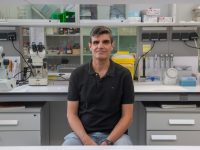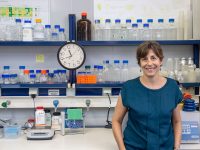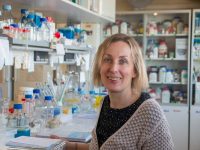Virus vs. bacteria
Pilar Domingo Calap is a Ramón y Cajal researcher at I2SysBio
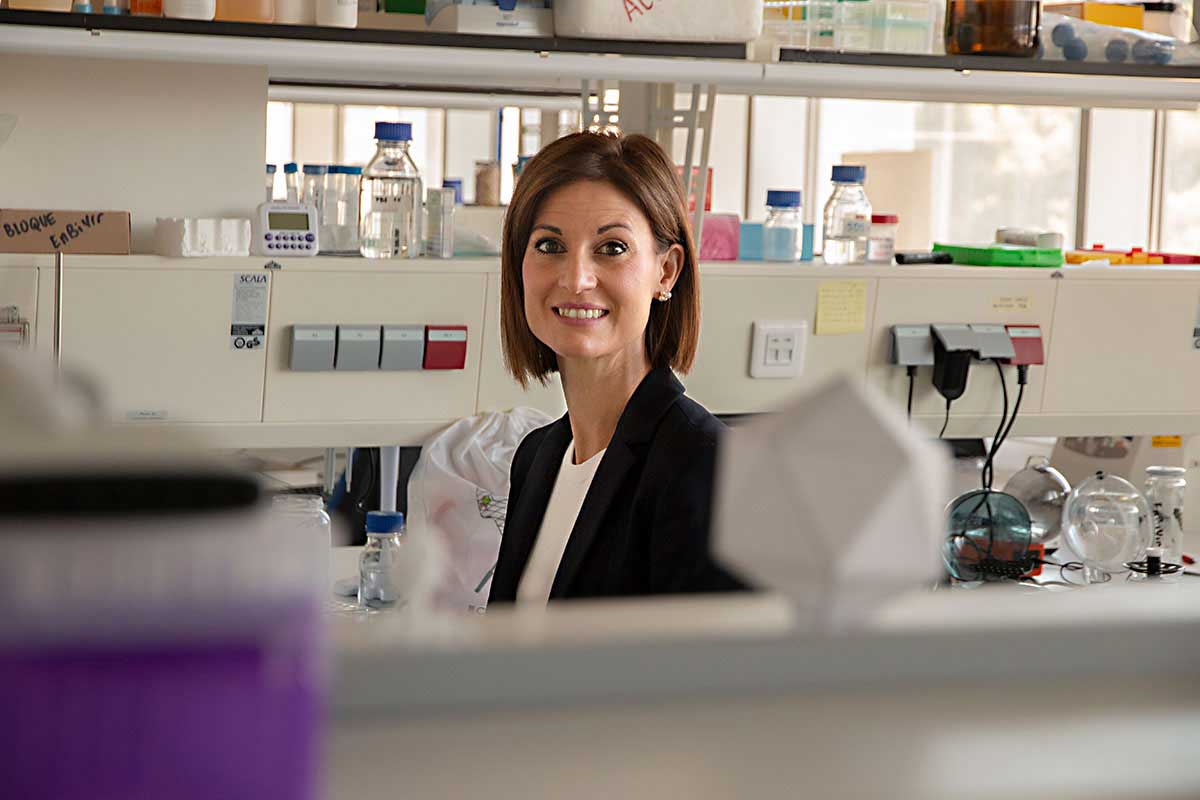
I am Pilar Domingo Calap, Ramón y Cajal researcher at I2SysBIO, where I head the «Environmental and Biomedical Virology» research group, in which we use environmental viruses as biomedical or biotechnological tools. I combine research with teaching, as I am also a lecturer in the Department of Genetics at the Faculty of Biology. I have also recently set up a spin-off company, Evolving Therapeutics S.L., based on the knowledge acquired in the laboratory.
In our group, we are looking for environmental viruses that we will optimise in the laboratory to develop a biomedical or biotechnological application. Bacterial viruses, bacteriophages or phages, are the most abundant biological entities on the planet. We do bioprospecting to try to find one that is capable of killing a particular bacterium of interest. Phages are very specific, they only recognise the target bacterium, so they are environmentally safe. They are a very useful tool because we can use that specificity to know what bacteria we have and therefore use them in diagnostics, to prevent infections or even as a treatment against pathogenic bacteria. We do all this within a One Health approach, which takes into account the health of people, animals, plants and the environment.
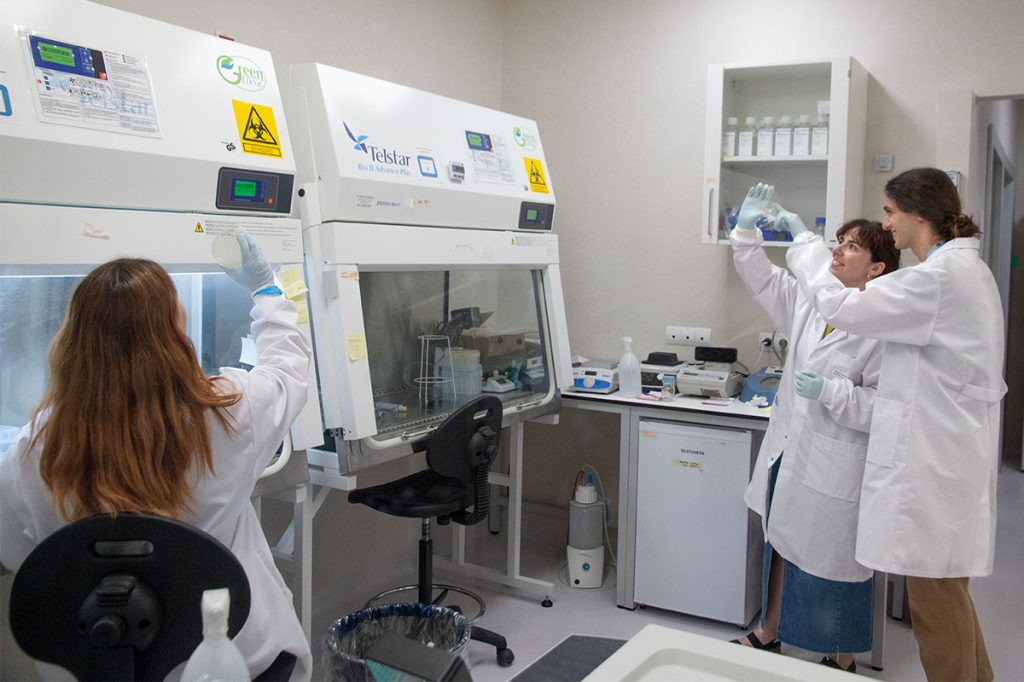
The emergence of resistant bacteria is a global public health concern. In Spain, antibiotic resistance kills between 4 and 10 times more people than road traffic accidents – that is, between 4,000 and 10,000 people a year. Globally, a retrospective study in 2019 claimed that 1.3 million people died from this cause worldwide that year. If this trend continues, it is estimated that by 2050 it will be around ten million people a year, and that is unacceptable.
One of the main problems with phage therapy today is that it is not yet regulated by the European Medicines Agency (EMA) or the US Food and Drug Administration (FDA). However, it can be used as a compassionate treatment for patients for whom there are no effective treatments. Regulatory authorities are expected to allow the use of phages as routine therapy in the short term – in fact, the EMA has already published the first guideline for the use of phages in veterinary medicine, which is expected to be very similar to the human guideline. In Europe, we are already using phages as a compassionate treatment in human medicine, and the first clinical trials are underway.
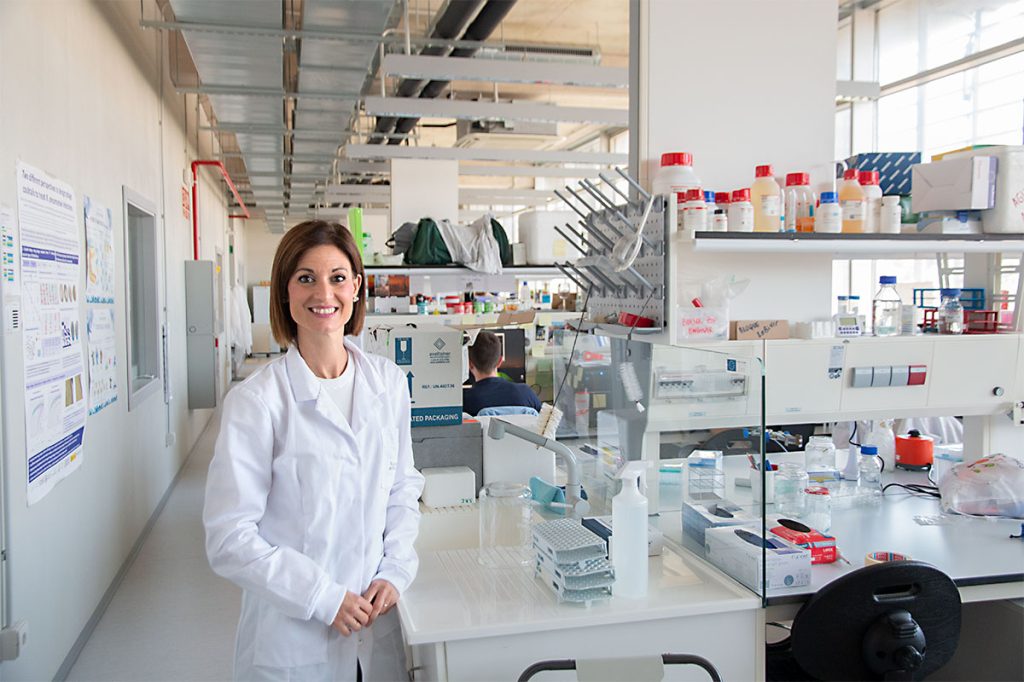
In our spin-off company, Evolving Therapeutics, we are harnessing the evolutionary ability of viruses to adapt to bacteria by offering phage-based antimicrobial solutions. Bacteria need new biocontrol alternatives. We take viruses from the environment that evolve with bacteria and use this adaptive capacity to develop and implement tailor-made precision products. We can isolate phages from the environment, characterise them, optimise them through directed evolution and test them to validate their efficacy. Finally, we have developed protocols approved by the Spanish Agency for Medicines and Medical Devices (AEMPS) for the production of therapeutic vials to treat patients, animals and crops. In fact, Evolving Therapeutics carried out the first phage-based field biocontrol against Xylella fastidiosa under contract to the Balearic Government. Based on our biotechnological knowledge, our company collaborates with technology centres, other companies and research laboratories to provide tailor-made solutions for each client.

